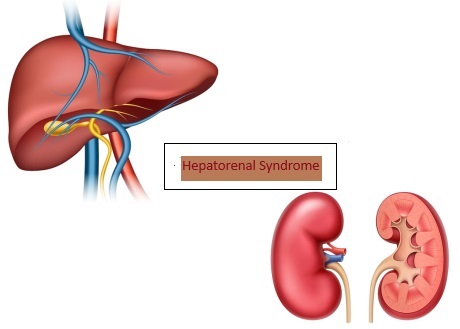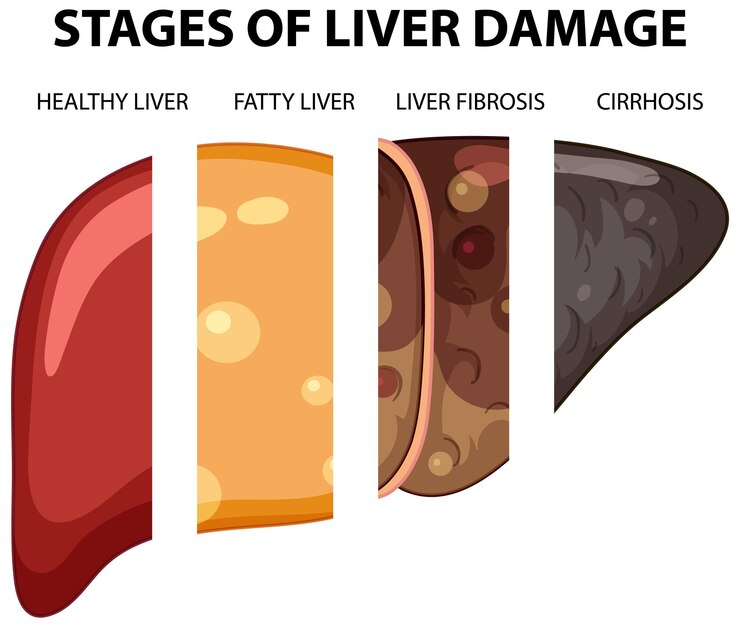
- 1278
- 0
Impact of Kidney Disease on Liver Health
The human body is a complex network of interconnected systems, each playing an important role in maintaining overall health. Among these, the kidneys and the liver stand out as the most important organs with their individual functions. However, their relationship is more interconnected than one might initially think. In this blog post, we will look into the intricate connection between kidney disease and liver health. Also exploring the intense effects that kidney disorders can have on the liver.
The kidney-liver axis
To understand the impact of kidney disease on liver health, it is essential to know the kidney-liver axis—the dynamic interplay between these two organs. Both the kidneys and the liver are responsible for filtering toxins and waste products from the blood. The kidneys eliminate these substances through urine, while the liver metabolizes and excretes them through bile.
When the kidneys face dysfunction, as in the case of kidney disease, their ability to filter waste decreases. This leads to the accumulation of harmful waste products in the blood, placing an additional burden on the liver. Consequently, the liver has to work harder to compensate for the compromised filtration function of the kidneys.
Hepatorenal Syndrome: A Challenge to Liver Health
In some cases, the strain on the liver caused by kidney disease can lead to a condition known as hepatorenal syndrome (HRS). HRS is a potentially serious complication characterized by a progressive decline in kidney function, often accompanied by liver dysfunction. The precise mechanisms underlying HRS are complex, involving altered blood flow, hormonal imbalances, and inflammatory responses.

HRS poses a significant challenge for both healthcare providers and patients. The simultaneous impairment of kidney and liver function can lead to a cascade of complications. Prompt diagnosis and intervention are crucial to managing HRS and mitigating its impact on overall health.
Liver damage and fibrosis
Chronic kidney disease (CKD) can also contribute to liver damage and fibrosis, further emphasizing the intricate relationship between these organs. Studies have shown that individuals with advanced CKD are more likely to develop liver fibrosis, a condition characterized by the excessive accumulation of scar tissue in the liver.

The exact mechanisms linking CKD to liver fibrosis are not fully understood. It is believed that systemic inflammation, oxidative stress, and altered immune responses play key roles. As liver fibrosis progresses, it can lead to more severe conditions, such as cirrhosis, posing a substantial threat to both liver and overall health.
Managing the Dual Challenge: Kidney and Liver health
Addressing the impact of kidney disease on liver health requires a comprehensive and multidisciplinary approach. Healthcare providers must monitor and manage both kidney and liver function closely, considering the potential complications that may arise from their interdependent relationship.
Patients with kidney disease can take proactive steps to support their liver health, including maintaining a healthy lifestyle, managing underlying conditions such as diabetes and hypertension, and adhering to prescribed medications. Regular medical check-ups and collaboration between nephrologists and hepatologists are essential to ensuring early detection and intervention.
For any assistance, get in touch with Dr. Pratim Sengupta’s team.
The connection between kidney disease and liver health is a testament to the intricate balance within the human body. As we continue to unravel the complexities of these interdependent systems, it becomes increasingly evident that the health of one organ profoundly influences the well-being of the other. By understanding and addressing the impact of kidney disease on liver health, we can develop more effective strategies for managing these interconnected challenges and promoting holistic health.
For additional information on holistic well-being, feel free to explore our YouTube Channel– Click Here 👇
Comment
Check Your EGFR
***We Promise, no spam!








